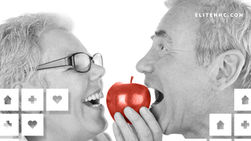5 Healthcare Technology Advances in Dementia
- 718361
- Jan 9, 2020
- 2 min read

In 2014, 1.6% of Americans were suffering from Alzheimer's and related dementias. By 2060, that number is expected to grow to nearly 3.3% of America's population.
We want to arm both dementia patients and their caretakers with as many tools as possible to ease the burden this disease takes on everyone. Keep reading to learn the five healthcare technology advances in dementias.
1. There are Healthcare Technology Advances Such as Home Monitoring Devices
It's not always possible to provide 24/7 care to a loved one suffering from dementia. Home monitoring devices provide a range of safety measures such as:
Turning on and off lights
Setting thermostats
Monitoring electrical appliances
These devices let you make adjustments using your smartphone and even send you alerts.
2. Telehealth
Telehealth uses electronic telecommunication technologies like Zoom or Skype to distribute health-related information. Users can even have virtual medical appointments using their tablet, smartphone or computer.
Telehealth is proving that a virtual visit can be just as or even more effective than seeing a doctor in person. Patients and caregivers save time by not having to travel or sit in a waiting room.
Other Benefits of Telehealth
As telehealth grows, its benefits grow such as:
Robotic surgery via remote access
Physical therapy via digital monitoring instruments
Home monitoring by sending continuous patient health data can also help vastly improve patient care.
3. Communication Aids
It's vital that dementia patients stay connected to others. Not only to ensure they have the right type of support they need, but it also helps improve the quality of life in memory care.
Patients with dementia may not always remember names or recognize faces but they can still recall how events make them feel.
Staying in Touch Even When Far Away
And while not all loved ones can visit in person, they can stay in contact via technology.
Video chat services such as Skype and FaceTime help people to stay in touch and create new memories no matter where anyone lives. Apps such as Talking Mats let people communicate feelings by choosing symbols and pictures.
4. Medication Management
Medication management can be both low-tech and high-tech. A low-tech solution is to use a pillbox that's marked with the days of the week so patients don't forget to take their medication.
A high-tech example is using an automated pill dispenser that beeps and opens. It's a great tool to remind caregivers and patients to take their medication.
5. GPS Location and Tracking Devices
One of the scariest parts, when someone has dementia, is they tend to wander. Thankfully, dementia patients can now wear a tracking device to help locate them if they go missing.
Many tracking devices also come with alert systems that sound off if a patient leaves a specific area. Emergency personnel can be alerted so the patient is found and treated quickly.
Get the Help You Deserve
While healthcare technology advances can greatly help those suffering from dementia and their caregivers, no one can take the place of a human being. Whether you need a little bit of help or a lot, we're here for you.
We have a range of services designed to benefit both caregivers and patients.
Click here to find out which services are best for your needs.









































Comments